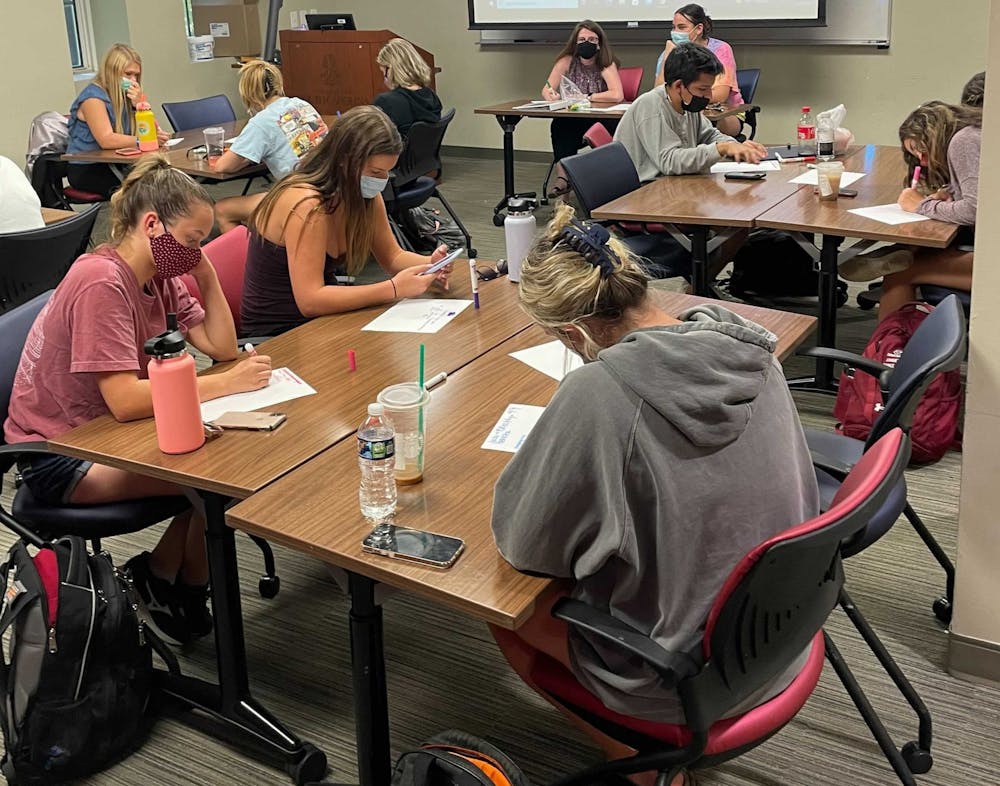Being a peer leader in University 101 is rewarding and benefits more people than just first-year students.
The transition from high school to college can be a turbulent time. Having a friendly face on campus is exactly what these students need.
“The course has been around since 1972. Peer leaders have been a part of the course since the 1990s,” Emma Reabold, assistant director for peer leadership with University 101 programs, said.
Reabold explained how, over the years, USC has collected data to show how peer leaders are making an impact on these first year students time and time again.
“At the end of every fall semester, our first-year students fill out an end of course survey. And in that, a big section of that is asking them about the impact of the peer leader, and consistently they report super high scores in helping them make a valuable transition," Reabold said. "They are a valuable resource, so helping them get connected in ways that they may not even know where to start.”
Having a mentor — someone who first-year students can relate to — changes the environment and benefits the class. The peer leader can act as a success story of a student who has gone through everything they are going through and can put the challenges first-years are facing in a new light.
“(My peer leader) has given us a perspective that no professor really can because she's one of us, but she's here to help us,” Eliza Davis, a first-year nursing student, said.
Davis also spoke about how U101 would not be the same without her peer leader.
“I think it would still be a good course," said Davis. "I just think having her in there just adds another layer to it that helps the students be able to adapt more and have more comfort in the class.”
While a single first-year student's experience can’t speak for the class of 2025 as a whole, it can give an inside look on exactly how and why having a peer leader in class can be so beneficial.
The peer leader takes on many responsibilities in a U101 class, but these serve both the class instructor and the peer leader themselves.
Currently teaching his first ever U101 course, Bill Brown, an undergraduate academic advisor, made a point of how the instructor gets to extend their knowledge to the peer leader and the peer leader gains life skills.
“For the professor, it gives us someone to, kind of, mentor, it gives us someone to maybe give some of our tasks to, to maybe get some experience in that area. But for a peer leader, they gain confidence in leading, they gain confidence in planning and it just gives them that experience to put on the resume.” Brown said.
Essentially, from the exchange of ideas, experiences and can-do attitude, everyone gets an advantage from the peer leader position.
Reabold said it best: “It's a wonderful opportunity to leave an impact here at Carolina on 19 students, you know, which is pretty powerful."
Over 20 years worth of peer leaders have joined the U101 program. It seems to be a staple of the university that is here to stay. As connections are made between student, peer leader and instructor, everyone takes away a new sense of what it means to be a Carolinian.

